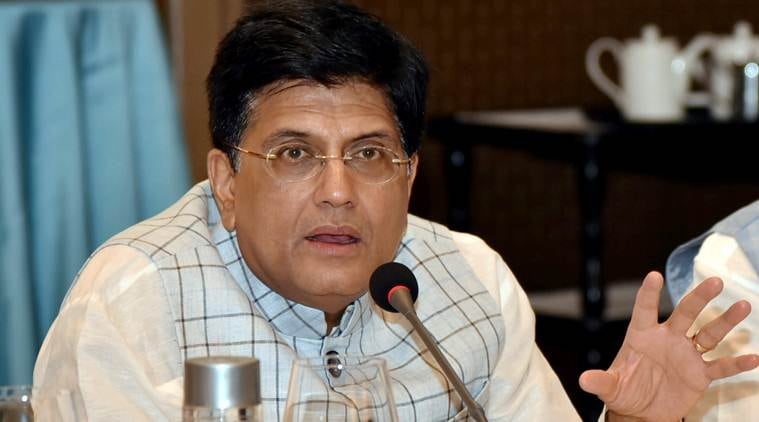Piyush Goyal holds ‘marathon’ of consultations with industry players ahead of RCEP meet
Goyal held a "marathon" of meetings with representatives of "all" sectors, including gems and jewellery, steel, copper, aluminum, zinc, chemicals, pharmaceuticals, plastics, rubber, leather, textile, apparel, auto, electronics and engineering products, according to them.
 Commerce and Industry minister Piyush Goyal.
Commerce and Industry minister Piyush Goyal.
Commerce and Industry minister Piyush Goyal on Monday called on industry bodies in Mumbai to review issues that India would need to keep in mind when continuing deliberations on the Regional Comprehensive Economic Partnership (RCEP) next month in Beijing. Similar consultations will take place in Delhi Tuesday, officials and industry representatives close to the development told The Indian Express.
Goyal held a “marathon” of meetings with representatives of “all” sectors, including gems and jewellery, steel, copper, aluminum, zinc, chemicals, pharmaceuticals, plastics, rubber, leather, textile, apparel, auto, electronics and engineering products, according to them.
While senior Commerce Ministry officials held similar closed-door meetings last week, Goyal wanted to conduct “wider” stakeholder discussions before meeting with trade ministers of other RCEP countries.
“The main purpose of these meetings is to take the views of the industries, their sensitivities, aspirations and challenges when negotiations resume in Beijing,” said an official privy to the developments on condition of anonymity.
The meeting on Tuesday might focus on reviewing and hashing out resolutions to issues between upstream stakeholders, like raw material producers, and downstream stakeholders, like finished goods manufacturers, according to the official.
“When there are competing interests, there are bound to be various concerns (that need to be worked out),” the official said.
RCEP is a mega free trade agreement being negotiated between the 10 ASEAN group countries, India, China, Japan, South Korea, Australia and New Zealand. India has until November to join it.
All chapters of the deal, including those covering agriculture, steel, marine and textiles sectors, were discussed at Monday’s meetings, said persons close to the development.
Some industry representatives at the meetings on Monday, however, said the Minister shared his apprehension over signing the deal over fears that it would let some RCEP countries, especially China, flood the Indian market with cheaper goods. “While the Minister himself has been apprehensive of signing it, he realises that it is such a big trading bloc,” an executive said.
Goyal expressed concerns that as RCEP countries currently account for over 40 per cent of global trade currently, not entering the agreement would leave India completely isolated from technology transfers and without a competitive advantage, added the executive.
“He also felt that participating in the RCEP agreement would give India the chance to improve upon its existing free trade agreements with RCEP countries, which have currently put the country at a disadvantage as it has a trade deficit with most of them,” the person said.
The consultations also assume importance as stakeholders from industries like steel have raised concerns over the potential impact of the agreement on their business.
On the other hand, finished goods manufacturers have argued that limiting steel supply to domestic producers through higher import duties makes it expensive for the former to manufacture and puts them at a disadvantage.



- 01
- 02
- 03
- 04
- 05




























